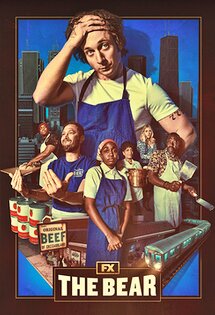We bring our history to every encounter
I recently started watching the TV series “The Bear”on Hulu. You have to put up with a lot of yelling and cursing (I mean A LOT) to get into the story and learn about the ensemble cast. The series is set in a sandwich shop called “The Beef” in Chicago that is owned and run by the Berzatto family. You can see from where the name “The Bear” is derived.
At first glance, the show seems to be about the rough and tumble behind-the- scenes running of a restaurant with a shaky financial past. It is about so much more.
When generations of an extended family are involved in this pressure cooker situation, one learns a lot more about their relationships, their joys and sorrows and their hidden pain. Mikey Berzatto, the charismatic former owner, has recently committed suicide. Everyone is dealing or not dealing with this very inconvenient truth.Carmen Berzatto, Mike’s brother, has inherited the restaurant. He quits his job as a chef in a four-star restaurant in New York to return to Chicago to run this shaky venture. Why? That is the question running throughout the series.
A friend of mine, who is increasing her fluency in French, says the French have a saying, “trop des casseroles.” Another way the French say this is “trainer des casseroles,” or “dragging saucepans.” It’s that language’s way of saying we carry “baggage” or “emotional baggage.” The saying originated from a bad trick street kids use to play. They tied an old saucepan to the tail of a stray dog, who would thrash about to get rid of it, making matters worse. The saying was linked to people’s lives at the time of the Dreyfus affair in 1902. Thereafter it entered the French lexicon.
Carmen Berzatto “traine trop des casseroles.” When we are honest, we admit we do too.
I follow the blog of Cheryl Richardson, author and life coach. She has been a popular author, speaker, media darling and guru of life/work balance issues especially for women for many years. She has stepped back from the hustle and pizzazz to reevaluate and prioritize in her own life and career now that she is in mid-life. She writes about this experience in her newest book, “Waking Up in Winter.”
In a recent blog post, she wrote descriptively about coming to an encounter with “trop des casseroles.” She helps us understand it this way:
“We bring our history to every encounter. While it might look like I’m having a conversation with a friend, for example, the reality is there’s a crowd of people standing behind both of us. Who I am, what I believe, and how I behave is influenced by my parents, siblings, teachers, employers, religious leaders, friends, strangers, etc. Not only that, I’m also affected by past events – heartbreaks, disappointments, triumphs, trauma, betrayals, successes – all of it.”
In our highly charged social and political environment, it would be wise for us to become more aware of the crowd that stands around us.
We can choose to allow their thoughts and actions to replicate through us. We can also choose to reflect and ask, “Is that what I really think?” “Is that how I want to behave in this situation?”
We can turn around and look at that crowd and get to know who is in there. The loudest in the crowd doesn’t have to have the most to say. When we find pain in there, we can say, as Simon and Garfunkel sang long ago, “Hello darkness, my old friend, I’ve come to talk with you again.”
It seems counterintuitive to say “be the change you want to see.” Therapists and social scientists tell us it is true. If we want to work for change, we have to begin with ourselves.
Cheryl Richardson summed up her post like this:
“I will be far more effective long term when I tend to my own wounded past because it allows me to bring a healthy adult to any conversation. I’m noticing when my past is affecting my present so I can do something about it. I’m choosing to be kind instead of judgmental because I want my words to heal. That way I have a better chance of contributing to a solution instead of to the problem.”
In the TV series, Carmen Berzatto starts to untie the noisy saucepans dragging from his tail as he talks about his thoughts and feelings at Al Anon meetings.
We can join Carmen and Cheryl when we commit ourselves to this important inner work and to saying for ourselves, “I want my words to heal.”






